Türkiye, US, Israel and YPG.
Türkiye, US, Israel and YPG.
On 24 September 2025, Türkiye and the US concluded a contract for the supply of LNG for a period of 20 years, with a volume of approximately 70 billion cubic meters.
The next day, on September 25, a meeting between Erdoğan and Trump took place at the White House. Trump urged Türkiye to abandon purchases of Russian oil, pointing out that this could contribute both to success in negotiations on Türkiye’s return to the F-35 program and lifting CAATSA sanctions imposed in effect since 2019 following Türkiye’s purchase of Russian S-400 systems.
Circles and media close to the Turkish government portrayed the talks and agreements in a very positive, almost cheerful light. But the picture doesn’t seem that one-sided.
On September 26, Foreign Minister Hakan Fidan speaking in New York, said licenses for the US-made F110 turbofan engines needed for KAAN are stalled in the US Congress, and “Kaan’s engines are being held up in the US Congress, with their export licenses frozen. Those licenses must be activated and the engines delivered so that Kaan’s production can move forward.”
However, on 29 September 2025, the US Congress blocked the supply of these engines to Türkiye. Fidan described the move as “a deliberate obstacle to Türkiye’s plans for achieving national defense autonomy.”
In the previous interview, we had asked İsmet Özçelik about the main dynamics of Türkiye-US relations. This time we covered other aspects of the same issue with our interview with Fahri Erenel.
How do you think relations between the US and Türkiye will evolve in light of the latest developments and agreements? What is the attitude in Turkish government circles towards the idea of abandoning purchases of Russian oil?
It might be useful to recall how relations have evolved: during Trump’s first term, his relationship with President Erdoğan had its ups and downs.
“Trump’s focus is on the Middle East, the Caucasus, the Balkans, the Eastern Mediterranean, and the Black Sea regions”
In his second term, there are some significant changes. One of them is that Trump’s plans have drifted further away from NATO’s. He seeks essentially to reshape NATO into a structure responsible for Europe’s own security, delegating that responsibility to the Secretary General and to European nations that are to raise their defense spending to 5% of GDP. Thus, he wants to turn his attention southward. By “south,” we mean the Middle East, the Caucasus, the Balkans, the Eastern Mediterranean, and the Black Sea region.
Trump’s first major initiative in these areas was to launch talks aimed at ending the Russia–Ukraine war. But after a series of meetings with Russia, Ukraine, and several European countries, he realized that ending the war in the short term was not feasible.
In the Caucasus, he tried to broker an agreement between Azerbaijan and Armenia with Türkiye’s active involvement. That deal did materialize, and he continues to push for it to turn into a remaining peace.
The US no longer believes Israel is capable of waging war
In the Middle East, his key ally remains Israel. During both Biden’s and Trump’s first terms, Prime Minister Netanyahu pursued not only his own agenda but also that of Christian Zionism which has deeply influenced both US presidents. Yet now, Washington has started to recognize that Israel is beginning to show signs of fatigue, particularly in its war with Iran, but also in the face of the heavy blows dealt by Hezbollah and Hamas.
There is growing exhaustion within the Israeli public and the military. Suicide rates in the army have risen, and the economy has taken a severe hit with losses exceeding 65 billion dollars. The tourism and construction sectors have stalled, the country’s tech industry has suffered, and immigration has declined.
The US now believes that an Israel in such a weakened state would be unable to provide support in a potential conflict with Iran. They think Israel needs time to rest and recover. And as the US continued to stand firmly behind Israel, global public outrage kept growing. I think the Trump administration also took that into account.
Where Türkiye’s importance for the US comes into play
As a result, Washington’s top priority in the Middle East has shifted toward restoring balance and stability in the region, so that it can refocus its attention on China. Indeed, right after the ceasefire in Gaza, the first issue on the US agenda became once again the tariffs on Chinese goods.
This is where Türkiye’s importance for the US comes into play. As a NATO ally with the strongest military in the region, Türkiye is now seen as a potential partner to help the US maintain influence and stability. For that, the US wants to improve relations with Türkiye. However, Washington has internal constraints in this regard: pressure from domestic public opinion, as well as from the Jewish and Armenian lobbies in the Congress. This prevents the Trump administration from fully implementing its plan to deepen ties with Ankara. Still, the US is gradually taking steps. We can even say that the first outcome of this renewed engagement with Türkiye was the ceasefire in Gaza.
Turning to the shale gas issue, his call for Türkiye to stop importing gas from Russia and switch to US shale gas seems clearly aimed at driving a wedge between Ankara and Moscow. Indeed, Türkiye has become perhaps Russia’s most important gateway to the West amid sanctions. The Grain Deal and Ukraine–Russia negotiations, as well as the prisoner exchange process, have all placed Türkiye in a strategically vital position. Yet, the US wants its partner countries to completely refrain from cooperation with Russia.
Shale gas is expensive for Türkiye, and it is unlikely to replace Russian gas anytime soon. Still, both the shale gas deal and the Boeing agreement can be seen as parts of the broader effort to rebuild US–Türkiye relations.
“Türkiye needs the F-35 or an equivalent aircraft”
From Türkiye’s perspective, the most significant aspect of these developments is that they appear to be steps toward reaching a deal on the F-35 program. One thing is certain: Türkiye needs the F-35 or an equivalent aircraft. As the 11-day war between Iran and Israel has shown, air power is absolutely crucial, especially for countries that do not share borders. That includes air forces and air defense systems capable of intercepting missiles.
Türkiye has made substantial progress in strengthening its air defense capabilities, which is a key requirement for being a regional power and intervention, but gaps remain. Until the S-400 systems were acquired, Türkiye’s defense relied solely on F-16s, which have now become outdated against more advanced systems. And following the S-400 purchase, the US’s CAATSA sanctions prevented Türkiye from reaching its desired position.
To put it bluntly, if Türkiye had the F-35s today and its “Steel Dome” defense system had been operational earlier, Israel would not have been able to act as it does now.
This issue also ties into Türkiye–Greece relations. Greece purchased Rafale jets from France and F-35s from the US. It continues to strengthen its position on land and at sea through new acquisitions from the US and France. Türkiye, meanwhile, fell behind in what was once its strongest domain, air power, largely due to the CAATSA sanctions.
To recap what you said: The Trump administration believes that the level of aggressiveness Israel has shown in recent years is no longer sustainable. For that reason, it wants a certain degree of stabilization in the region, and for that, it needs Türkiye. But some voices in Washington like an article published in Foreign Policy on September 30 claims that US–Türkiye relations are becoming less significant, and that the dispute over Syria remains unresolved. For the Turkish government, developments in Syria are currently the top foreign policy priority. Do you think that Ankara and Washington can reach a compromise here?
Türkiye, US, Israel and YPG
At the moment, the Gaza and Hamas issue has temporarily pushed Syria and the YPG to the background. Türkiye has accepted this, for now. But this is only a temporary situation. The real test in US–Türkiye relations will ultimately revolve around the YPG issue.
In fact, the YPG problem is not just between Türkiye and the US, but rather between Türkiye and Israel. Depending on the trajectory of Israel–Syria relations, the US might become more open to finding a solution on the YPG issue. However, Israel is likely to resist that. Since the YPG counts on Israeli backing, it is unlikely for them to return to the March 10 memorandum for now. But if negotiations between the al-Sharaa government and Israel reach a mutually satisfactory outcome, Israel may abandon the YPG, leaving it with little choice but to accept the terms of that memorandum.
The US is not rushing
So far, the YPG issue has been discussed in Turkish public opinion mainly around the US support and a plan to establish a “terror corridor” along Türkiye’s southern border. But do you now think that the real determinant is Israel, not the US from now on?
Yes. Despite resistance from CENTCOM and the Pentagon, the Trump administration still intends to withdraw troops from the region. It has already withdrawn some. But the real issue isn’t simply about whether the US has troops on the ground. Being involved in a region doesn’t necessarily require a military presence. The fact that this year’s US budget still allocates funding for the region reflects the uncertainty surrounding Israel, in terms of what it will do and what might happen to it. Because of that uncertainty, instability persists. The US is not rushing into any major decisions, instead it’s acting according to circumstances, trying to maintain balance without pushing Türkiye limits too far.
In the near future, the most decisive factor in shaping regional dynamics will likely be the relationship between Israel and the al-Sharaa government and whether they can reach an agreement.







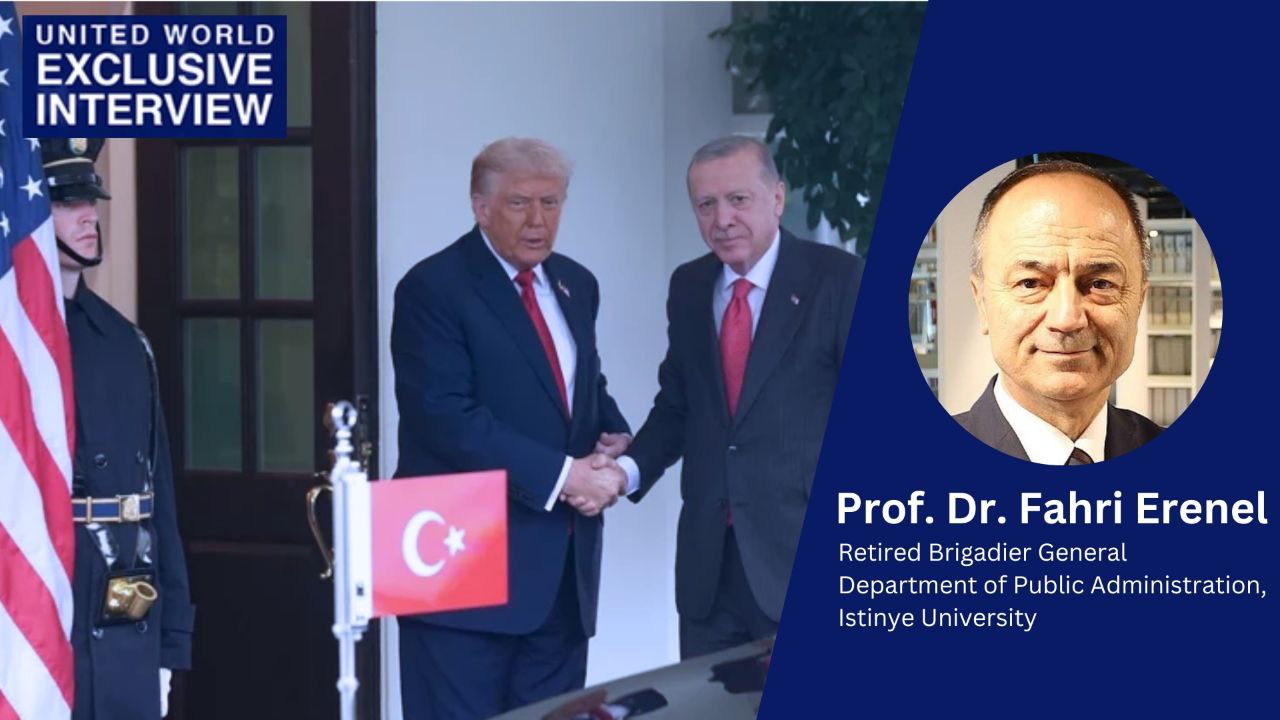

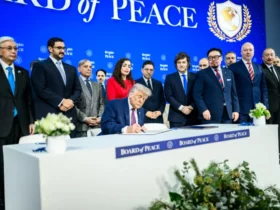
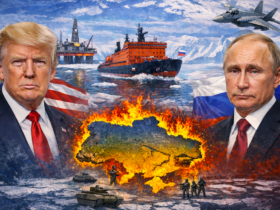

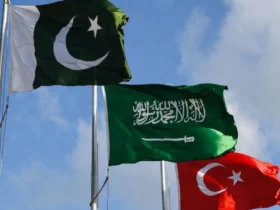
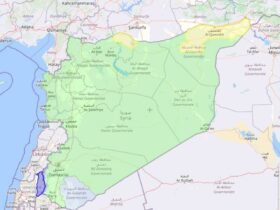



Leave a Reply